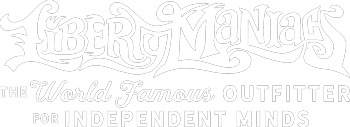Every piece I’ve bought has held up, looks great, and is actually comfortable to wear—can’t say that about a lot of brands. I’m hooked. Nothing else I’ve found comes close.
Browse Categories
Add description, images, menus and links to your mega menu
A column with no settings can be used as a spacer
Link to your collections, sales and even external links
Add up to five columns
Add description, images, menus and links to your mega menu
A column with no settings can be used as a spacer
Link to your collections, sales and even external links
Add up to five columns
The OEKO-TEX Standard for Textiles
The OEKO-TEX Standard 100 is a globally recognized certification for textiles and fabrics that ensures they have been tested for harmful substances. It was developed by the International Association for Research and Testing in the Field of Textile and Leather Ecology (OEKO-TEX) to provide consumers and manufacturers with confidence that the textiles they use are free from harmful chemicals and safe for human use.
When a fabric or textile product is OEKO-TEX Standard 100 certified, it means that it has been tested for a comprehensive list of potentially harmful substances, including but not limited to:
- Carcinogenic and allergenic dyes
- Pesticides and heavy metals
- Formaldehyde
- Phthalates
- Flame retardants
- Chlorinated phenols
- Organotin compounds
The certification process involves laboratory testing to ensure that the fabric meets specific criteria for each tested substance. If the fabric meets the stringent requirements set by OEKO-TEX, it receives certification, which is usually indicated by a label or tag on the product. The certification is valid for one year, after which the fabric needs to be retested for renewal.
There are different product classes within the OEKO-TEX Standard 100, each catering to different usage scenarios and populations, such as products for babies, toddlers, and adults. The certification is widely recognized by consumers and manufacturers as a mark of safety and environmental friendliness.
Reviews
Finally, a brand that’s got some guts! I ordered a shirt just for laughs, but now I’m back getting them as gifts for the whole family. No cheap prints or lame designs—this is the real deal.

My husband loved it. One shirt had to be exchanged, but it was easy. Will buy again.

Tiger stripes! Another cool manics shirt. Thanks guys!

Savage designs. I occasionally wear my shirts to work under another shirt and smile. They finally have really nice heavy tees that don't feel stiff. I didn't like their old zip hoodies because they were too lightweight and made by American Apparel, but now they have heavier ones that hold up.

Great quality. Most ‘patriotic’ gear is all flash, no quality, but not Liberty Maniacs. They’re clever, sharp, and have a sense of humor without being tacky. Proud to wear this stuff.

Super soft and insanely comfortable! I love my shirt, and my husband loves his hoodie… or should I say my new hoodie since I keep ‘borrowing’ it while he’s at work. It's definitely our favorite brand now.

Nice quality, soft cozy material.
Will definitely buy more. Shipping came on time. The sizing was good, and I got a ton of compliments on it.

This shirt? Chef’s kiss. Rocked it around town, and let’s just say it got some looks—can’t argue with launching a few politicians via catapult. Soft as hell material. 10/10

Great fit and quality as always!

I've learned to be more discriminating about the companies I buy from. I've been happy with both orders. Keep up the good work.

Liberty Maniacs nails it with the patriotic gear. I got the shirt with Lysander Spooner, and it’s hands down my new favorite. Not only is the design legit, but it actually feels like a shirt I want to wear (super soft, if you’re wondering). Plus, half the fun is when someone recognizes it. Can’t wait to see what other historical gems they come out with!

Subscribe
Sign up to get the latest on sales, new releases and more …








